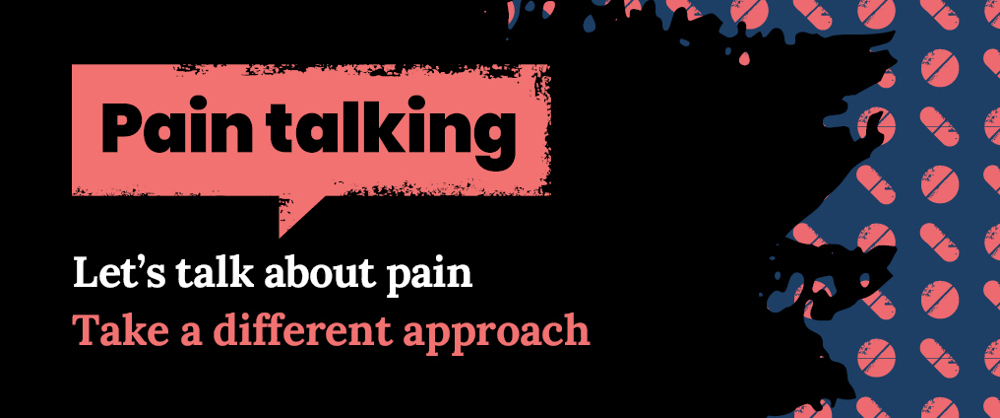
This information has been developed to supplement the information the doctor or healthcare practitioner has already given you.
Date of Issue: March 2025
Review Date: March 2026
If the review date has passed, the content will apply until the next version is published.
What are opioids?
Opioids are pain medication used for severe pain. Opioids include codeine, tramadol, morphine, and oxycodone.
Opioids can be misused and cause harm. Morphine is a controlled drug, meaning it is subject to extra regulations. Prescriptions are limited to a 30 day supply.
Opioids for chronic (long-term) pain
Opioids may be helpful for short term use. They provide little benefit in the longer term. They can reduce quality of life. The risks from opioids increase with higher doses.
Opioids are not recommended for long term use.
Medication is only one part of pain management. Learning more about pain and other ways to manage can be beneficial.
Risks of opioids
Common side effects of opioids are feeling sick, constipation, confusion, sleepiness and occasionally vomiting.
Less common side effects are itching, sweating, dry mouth, headache, rash or slow breathing.
Opioids can affect other body systems. They can cause changes in hormones, immunity and bone health. They may also increase all over pain, known as ‘hyperalgesia’.
Tolerance and dependence to opioids can develop. This means they stop helping pain. There are withdrawal effects when not taken. Opioids can be addictive. If you have any concerns, talk to your doctor or pharmacist.
Opioids can cause drowsiness. If sleepy do not driving or operate machinery. It is an offence to do so if unsafe due to medicines.
Review of opioids
Regular review is needed to:
- Check if the medication is still helpful
- Monitor for side effects or problems
- A trial reduction should be considered at least every 6-12 months
Withdrawal symptoms
Stopping opioids may cause withdrawal symptoms, similar to flu-like symptoms. Reducing the dose slowly will help minimise these.
Withdrawal symptoms can include;
- Nausea, increased pain, restlessness, flushes, sweating, cramps and diarrhoea.
Withdrawal effects can occur 24 to 48 hours after reducing a dose. They are usually mild and last less than 2 weeks.
If you experience withdrawal symptoms do not increase your dose of medication. You should feel better in a few days. If they are severe or last longer speak to your GP or pharmacist for advice.
Graph below shows typical pattern of withdrawal symptoms over time.
Reducing opioids
The best way to reduce opioids depends on the individual, the dose and duration of use. Your doctor or pharmacist can help you with a plan. You may need different strengths of medication to reduce your dose.
Opioids can often be reduced without any problems. If you get withdrawal effects or increased pain. Do not reduce the dose anymore. Maintain the dose that you reduced to. Wait for things to settle again before reducing further. You may need to reduce more slowly or by smaller amounts for future reductions.
Example 1 - Morphine modified release 30mg morning and night. Reduce in 10mg steps.
|
Morphine |
Morning |
Night |
|
Current dose |
30mg |
30mg |
|
Step 1 Reduce by 10mg |
20mg |
30mg |
|
Step 2 Reduce by 10mg |
20mg |
20mg |
|
Step 3 Reduce by 10mg |
10mg |
20mg |
Example 2 - Tramadol 50mg two capsules four times a day.
Reduce in 50mg steps.
|
Tramadol |
Morning |
Lunch time |
Tea time |
Night |
|
Current dose |
2x50mg |
2x50mg |
2x50mg |
2x50mg |
|
Step 1 Reduce by 50mg |
2x50mg |
1x50mg |
2x50mg |
2x50mg |
|
Step 2 Reduce by 10mg |
2x50mg |
1x50mg |
1x50mg |
2x50mg |
|
Step 3 Reduce by 10mg |
1x50mg |
1x50mg |
1x50mg |
2x50mg |
Take one step at a time. After 1-2 weeks, if no problems, take the next step. This process can be repeated until the opioid medicine is stopped.
Overdose
Taking too much morphine is called an overdose, and can be fatal. An overdose can be accidental.
If an overdose is suspected seek immediate medical help. Dial 999.
Signs include:
Confusion, hallucinations, slurred speech, blue lips or nails, small pupils, unresponsive or breathing problems.
Medication for chronic pain
Medicines are not always helpful for long term pain.
They can cause side effects and harm.
It is best to stop medicines that are not working or cause problems.
It is helpful to find other ways of managing pain.
A doctor or pharmacist can explain more.
Remember
Do not stop medicines suddenly.
Do not share medicines.
Never take more medicine than prescribed.
Let your doctor or pharmacist know if you take other
medicines or products.
Read the information sheet for each medicine.
Keep medicines out of the reach of children.
Store medicines safely.
Return unused medicines to your pharmacy.
If medicines make you drowsy, do not drive.
Discuss any medication concerns with your doctor or pharmacist.
Accessible formats
If you require this information in a community language or alternative format such as Braille, audio, large print, BSL, or Easy Read, please contact the Equality and Human Rights Team at: email: fife.EqualityandHumanRights@nhs.scot or phone 01592 729130. For people with a hearing or verbal impairment you can also contact the team through the NHS Fife SMS text service number on 07805800005.
